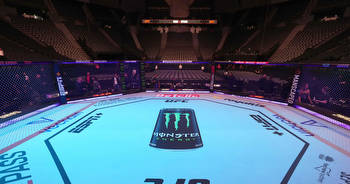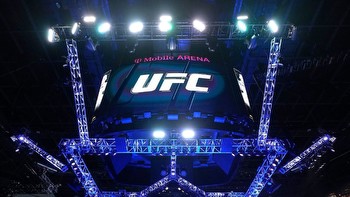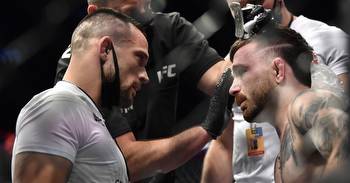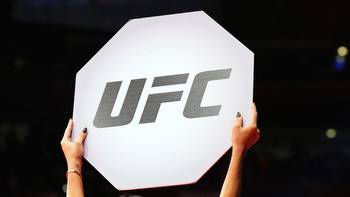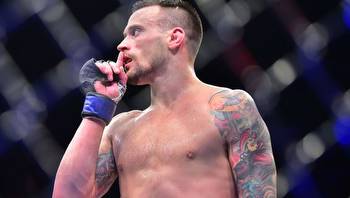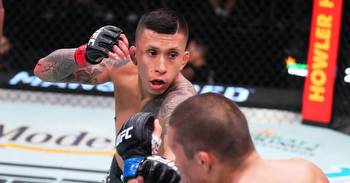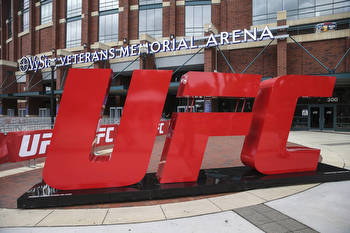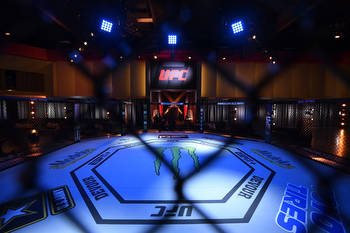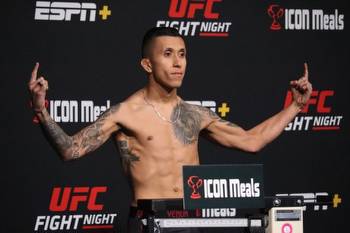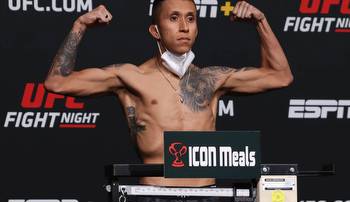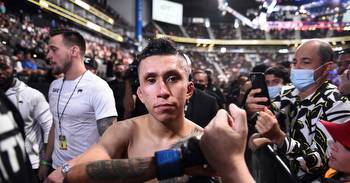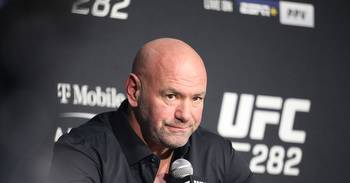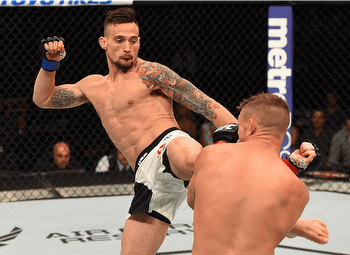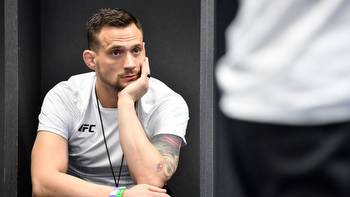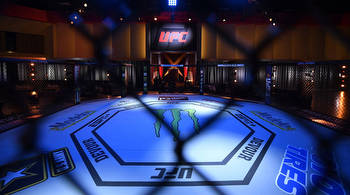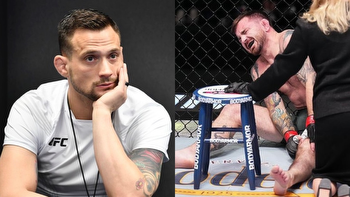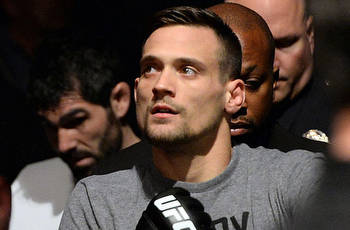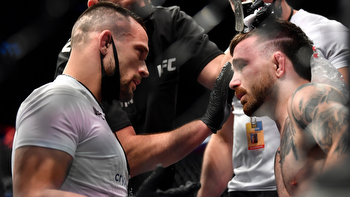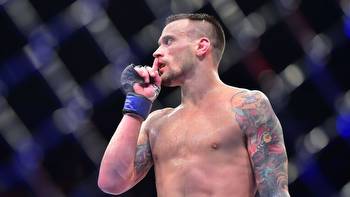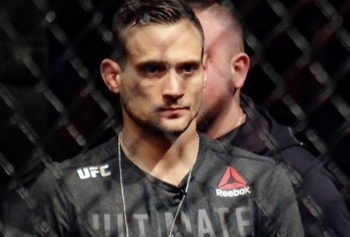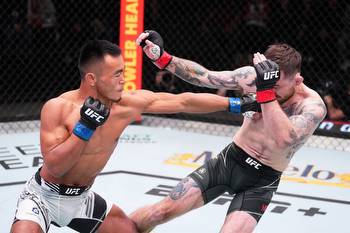UFC's anti-gambling stance looks weak
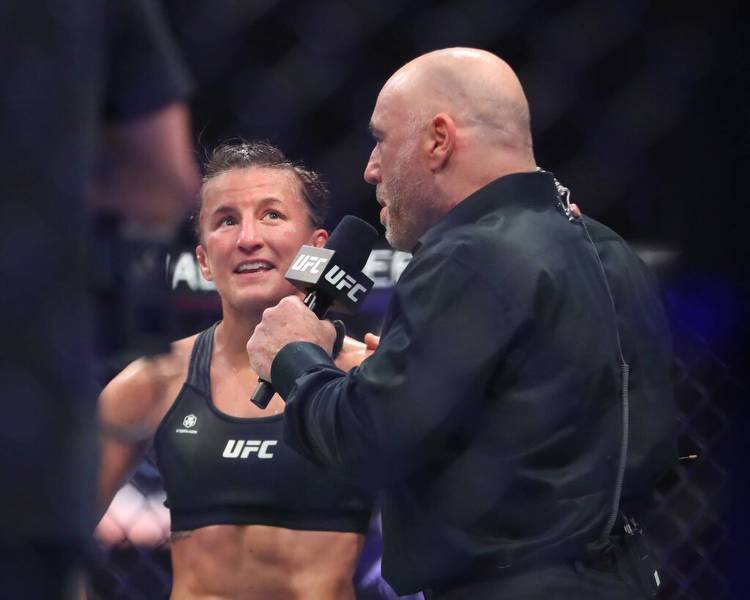
By all appearances, the investigations into possible insider betting by James Krause and Jeff Molina are still ongoing. The former UFC welterweight turned noted MMA coach put himself in the spotlight back in August of last year when he made a surprising admission during an interview on the MMA Hour.
“I make more money on gambling on MMA than I do anything else,” Krause told show host Ariel Helwani, describing how his tout operation not only gave tips to paying customers, but would even place bets on their behalf.
For a man still operating a top tier fighting gym, and only recently retired, his description of his gambling activities sounded a lot like the admission to a crime. Just a couple months later, in October, the UFC announced a new addition to their ‘code of conduct’—clear rules and regulations restricting fighters, coaches, managers, and anyone close to these figures from betting on fights. Most states already have laws covering this kind of gambling activity on the books. But now the UFC was following suit.
Krause and Minner made a mess
Things really came to a head, however, in November—when Krause-trained featherweight Darrick Minner stepped into the Octagon against Shayilan Neurdanbieke. Two middling action fighters at 145 lbs, the bout should have held a reasonably tight line in the odds, but just before they made their walk to the cage on fight day, money started pouring in on Minner’s opponent.
When the bout started, it became obvious why. Derek Minner was nursing a bad knee injury. Neurdanbieke finished the fight via TKO just one minute into round 1.
Reactions from authorities were swift. Shortly after the event an investigation into the fight began, Krause’s license was suspended. Jeff Molina, who also trained under Krause, was placed under suspension as well for his alleged role in the gambling operation. Dana White issued multiple statements, of growing seriousness over the idea of fighters betting on fights. The gist of them? Don’t do it.
“You know, we’ve always told fighters—as all the gambling stuff started to heat up—‘Stay away from gambling,'” White said in a December interview. “Obviously, don’t—’ I mean, do you know how stupid you have to be to get involved in something like that? Everybody—it gets caught.”
While we have yet to see another scandal on the scale of Krause and his Glory MMA team, it’s safe to say that the UFC as a whole has had something of a cloud hanging over it since. Well before Krause made his admission, other UFC fighters had talked openly about gambling on themselves and on MMA in general. With bookmaking partners on broadcasts, gambling touts making appearances on the Contender’s Series, and a relationship to Las Vegas casinos that goes back to the UFC’s purchase by the Fertitta brothers, gambling had been—and continues to be—a major part of UFC culture.
More recently, however, the Endeavor-owned organization had an opportunity to set its current stance on betting into action. More particularly, its stance on fighters betting on fights. Instead, they’ve remained radio silent.
Sam Hughes’ boyfriend places bet
Jaqueline Amorim at UFC 287, Sam Hughestold the UFC access media, “I know, my boyfriend told me he put a grand on me. Which, I wish he wouldn’t have told me that. He owes me a very good dinner, I’ll tell you that much.”
“A couple days ago, when I was at +400 or something like that,” Hughes continued, when asked at what point she found out about the bet. “I love it. I love it.”
In a vacuum it was a sweet moment of levity. It’s also exactly the kind of thing the UFC is meant to be looking to discourage.
The code of conduct
The most recent language in the UFC Code of Conduct on wagering states:
“Athletes are prohibited from placing any wagers (directly or through a third party) on any UFC match,
including placing any wagers on themselves. In most states with legalized sports betting, wagering by a
UFC athlete (directly or through a third party) on any UFC match is illegal and may result in criminal
sanction.
“Athletes should also be aware that in most states these same prohibitions apply to some or all of (i) relatives living in the same household as an athlete, (ii) an athlete’s coaches, managers, handlers, athletic trainers, medical professionals and staff, and (iii) any other person with access to non-public information regarding participants in any UFC match. An athlete that becomes aware or has knowledge of any wagering in violation of these restrictions must immediately notify UFC of such incident in accordance with this UFC Athlete Conduct Policy.”
While Hughes’ boyfriend possibly placed himself in legal jeopardy, from the UFC’s perspective, at worst, he could be explicitly banned from betting on Hughes’ fights as “…any other person with access to non-public information…” It’s a simple enough statement to make, and it seems like a good way to remind everyone just what the limits on gambling are supposed to be.
UFC’s silence
This isn’t any kind of call for Hughes to lose her contract, or even to face any sort of fines or sanctions. That seems like needless overkill for what was certainly a fairly harmless act. However, the hours after Hughes disclosed her boyfriend’s bet was the time for the UFC to speak up and redouble their stance on who can and cannot wager on fights and why. Instead, it seems they’ve stuck their head in the sand. Precisely the wrong thing to do if they want anyone to believe that insider betting is something they take seriously.
The promotion’s disinterest in acknowledging a breach of its code of conduct while investigations are ongoing for a much bigger gambling scandal only sends the message to the fighters that the important thing is not having regulators find out about it. Their updated code of conduct, and past public statements only come across as an organization looking to cover its ass if something bigger comes along. It’s not an active stance, but a passive CYA; we told you once, if you get caught, that’s on you.
Hughes’ admission was an opportunity to keep the promotion clear of dangerous legal waters and to let fans know that they care at least a little bit about the potential for thrown fights under their watch—while, at the same time, chalking up this particular incident as part of a learning curve.
They didn’t do that, and instead what we’ve got is another version of their stance on domestic violence. A bold statement made once, that’ll likely just get watered down by constant inaction.

